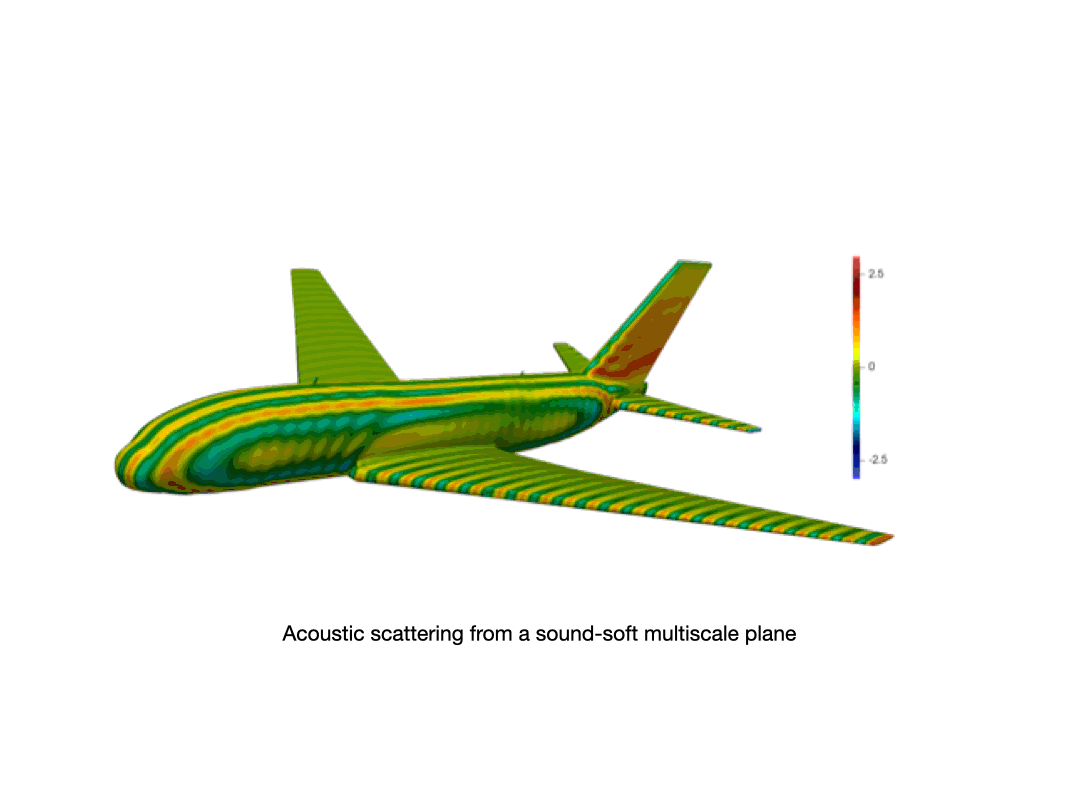- Indico style
- Indico style - inline minutes
- Indico style - numbered
- Indico style - numbered + minutes
- Indico Weeks View
Computational Tools for PDEs with Complicated Geometries and Interfaces
→
America/New_York
162 5th Avenue
162 5th Avenue
New York, N.Y. 10010
, , , , , , , , , ,
Description
Integral equation methods offer a powerful unified framework for accurate modeling in fields such as acoustics, electromagnetics, elastostatics, nano-optics, microfluidics, biophysics, and geophysics, governed by PDEs such as the Laplace, Stokes, Helmholtz, Maxwell, Navier, heat and Navier-Stokes equations. For constant-coefficient problems, they reduce the unknowns to functions defined on the boundary alone. Even for variable-coefficient and nonlinear problems, they have distinct advantages over standard finite difference and finite element methods. Aiming at graduate students, postdocs, and practitioners, we will introduce the basic mathematical foundation of such methods, illustrate their use in applications, and offer expert-run hands-on tutorials using a set of efficient software tools. These tools allow large problems to be solved with high-order accuracy in a time almost linear in the number of unknowns (so-called "fast algorithms"). The integral equation framework is geometrically flexible, allowing for input from a variety of CAD formats and the incorporation of corner and edge singularities in bounded, unbounded or periodic domains. Topics will include: integral equation formulations, discretization, fast solvers, PDEs on surfaces, volumetric representations for variable-coefficient PDEs, and applications to steady-state and time-dependent problems.
Conference themes
- Acoustic and electromagnetic scattering in the frequency domain
- Biophysical and geological modeling
- Surface PDEs
- Software tools for boundary value problems in two and three dimensions
- Fast direct and iterative solvers
- Hierarchical Poincare Steklov solvers
- Quadrature for singular integrals
Important Dates
- Feb 29, 2024: Application deadline
- Mar 18, 2024: Acceptance notification
- Mar 31, 2024: Registration Deadline
- Jun 6, 2024: Registration Deadline for virtual attendance
- Jun 7, 2024: Software installation support (10 am - 12pm, 2pm - 4pm)
Virtual Registration
- Register to attend the conference virtually here
Software
Most of the software tutorials are in MATLAB. We request all attendees to have a working copy of MATLAB, preferably R2020a or greater. The softwares should also work on octave, but some features may not be available. We encourage all participants to install the following software packages before the start of the conference:
In case you run into installation issues, there will be an installation support session on June 7, 2024 via zoom between 10 am - 12 pm, and 2pm - 4pm.
Breakout Sessions
We request that participants fill out the following google form indicating which breakout session they would like to attend on Wednesday.

The agenda of this meeting is empty
